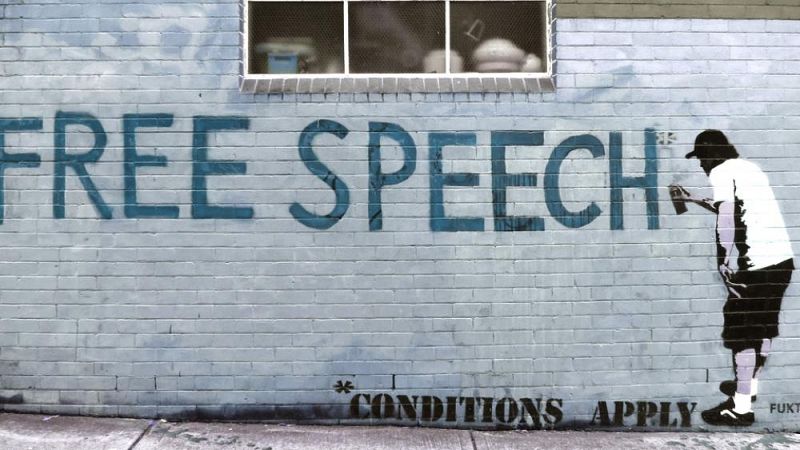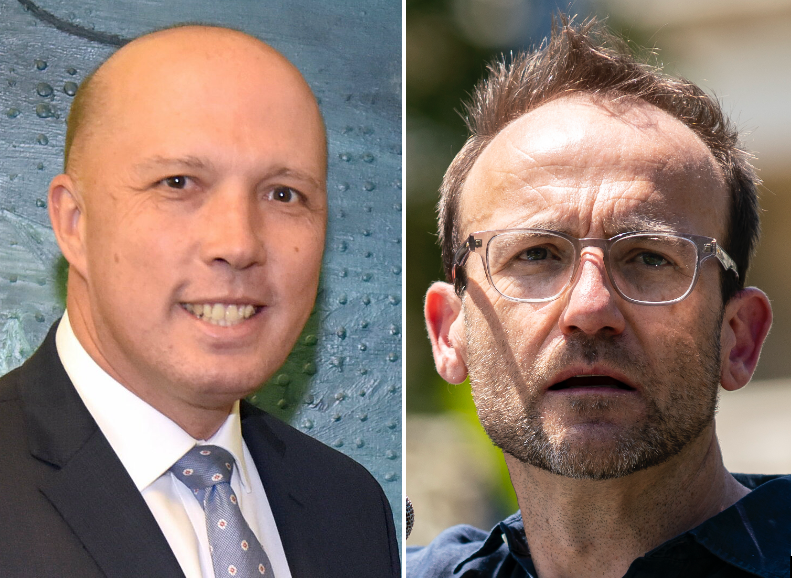The first thing whistleblowers learn upon blowing the whistle is that speech is not really free. Freedom of speech depends on what you say. The truths that expose corruption come with a price. Whistleblowers pay that price.
Freedom of speech has been discussed more in recent times as a result of three unrelated issues:
- the Israel Folau case;
- the 'Review of Freedom of Speech in Australian Universities' by former Chief Justice Robert French; and
- the raids by the Australian Federal Police (AFP) on offices of journalists involved in the "2017 Afghan Files" stories.
These issues are unrelated but are connected. They all relate to how freely we can speak.
Freedom of speech is really a contest of opinion. Whistleblowers have come to understand the importance of credibility in this contest. To be credible, whistleblowers must reveal only what they know and not what they can infer; they must act without malice and must be seen to be fair. To survive, whistleblowers must be credible. There are no GoFundMe pages for whistleblowers.
The Israel Folau case illustrates the problem of credibility. Folau expressed an opinion and leveraged the rights associated with freedom of speech and religion enshrined in Articles 19 and 20 of the International Covenant on Civil and Political Rights, to which Australia is a signatory.
Folau quoted from Leviticus. The Bible comprises many books, many authors and many opinions. Whistleblowers regard the New Testament as more relevant. Jesus was a whistleblower. Jesus threw money changers out of the temple. Jesus told the parable of the Good Samaritan where the person most unlikely crosses the road to help.
For whistleblowers, the indifference of bystanders is their main problem. Whistleblowers Australia uses the motto, All it needs for evil to flourish is for people of good will to do nothing. All of us one day may have to rely on a Samaritan who does not show the indifference of others. The Samaritan may be straight but they may be gay. Jesus didn’t say. Credibility depends on what a person does — not on their sexuality.
It is ironic that Australia is discussing freedom of speech when Australia does not have a bill of rights. In 1994 when I appeared before the first Senate Inquiry into Public Interest Whistleblowing, I argued for a bill of rights. We still don’t have one.
The 1986 Australia Act established the principle of appeals to the High Court rather than the Privy Council in London. It was a signature of our sovereignty. In his book, The Statute of Liberty, Geoffrey Robertson argued that an Australian bill of rights would allow Australians to have their rights argued before Australian courts. Legal cases allow free speech to be codified rather than assumed. It would be another signature of our sovereignty. An Australian bill of rights is long overdue.
The First Amendment of the United States Constitution is their benchmark for freedom of speech. The First Amendment underscores freedom of the press and whistleblowing. The founding fathers of the United States recognised that to be able to vote, the voters need full information.
Alas, it hasn’t always happened. The First Amendment has implications for whistleblowing. In 1968, the U.S. Supreme Court ruled a teacher had a right to speak on issues of public importance without being dismissed from his or her position. However, the ruling was reversed by a 2006 Court ruling that public employees did not have First Amendment protection. Whistleblowing and the First Amendment are yet to be fully reconciled.
The Trump era has made freedom of the press and whistleblowing more important. Americans will be grateful that James Madison and the other founding fathers were prescient enough to prescribe a First Amendment.
Last November, the Federal Government commissioned a review of freedom of speech in Australian universities. The review reported in March and recommended a model code of practice, relating to freedom of speech in universities. The report is notable for what is missing. There is not a single reference to whistleblowing in the report and only one submission was from an individual academic.
Contrast this with previous inquiries, like the 2001 Senate Inquiry Universities in Crisis, where nearly 100 academics made submissions. In private, many academics complain that too many students are being passed, that universities are too dependent on international students, that too much is being spent on overheads associated with management and marketing and that standards have fallen. In private, they complain. In public, none will speak out. A code of silence has descended on our universities.
Whistleblowers and the journalists who benefit from their disclosures have always been surveilled. The recent raids on journalist offices are the latest chapter.
In 1996, I organised one of the first national conferences on whistleblowing. Nearly 100 whistleblowers attended, from organisations as diverse as the New South Wales Police, Victoria Police, hospitals, banks, local government, state rail authorities and universities. Julian Assange attended. This was a formative era for whistleblowing in Australia following two Senate inquiries into whistleblowing in 1994 and 1995. We all paid our way. There were no subsidies. The public interest would not allow it.
The conference called for a number of policies including Federal whistleblowing legislation and a false claims Act. It took 18 years for Federal legislation to be enabled. We still don’t have a false claims Act.
We also called for a royal commission into the National Crime Authority following the report of an independent Queens Counsel, but it never happened. At the end of the conference, a box containing the names of the attendees, some cash and cheques were stolen.
Two months later, when John Elliott’s case against the National Crime Authority was resolved in his favour, I received an envelope in my post office box with the cash and the cheques from the conference. But the names were missing.
Whistleblowers are always targeted. It is the price we pay for free speech.
Dr Kim Sawyer is a senior fellow in the School of Historical and Philosophical Studies at the University of Melbourne.
 This work is licensed under a Creative Commons Attribution-NonCommercial-NoDerivs 3.0 Australia License
This work is licensed under a Creative Commons Attribution-NonCommercial-NoDerivs 3.0 Australia License
Support independent journalism Subscribe to IA.












